"The unjust falsification of history has particularly affected the soldiers fallen and having survived World War II."
The Director General of the Institute of Hungarian Research, Gábor Horváth-Lugossy, also participated in the ceremonial reburial of 102 Hungarian heroes exhumed from various battlefields and cemeteries in Hungary, in the Parcel of Heroes of the Fiumei Road Graveyard, at the invitation of László Töll, Director of the Military History Institute and Museum.
Below is the speech of the Minister of Defence:
"Dear Commemorating Audience,
The most ancient cult of mankind is the veneration of the ancestors, the dead. Whoever violates this, breaks the law of God, as everyone is entitled to a decent burial and a final resting place without disturbance.
This is especially true for those who die as warriors on the battlefield. Those who risk their lives out of a sense of duty and are defeated in what proves to be the final battle should also be accorded the highest honour.
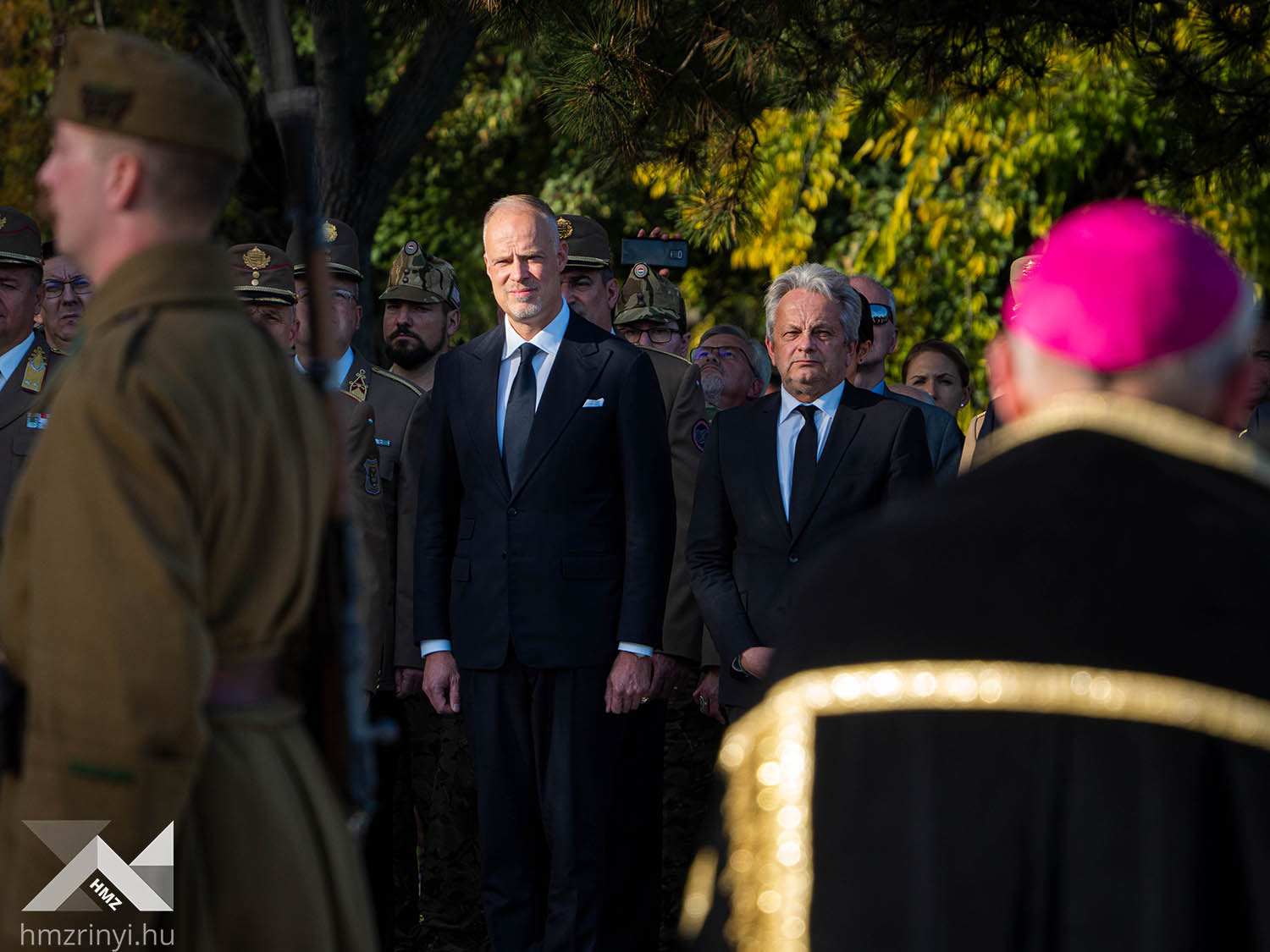
THERE ARE STILL A LOT OF NEGATIVE MISCONCEPTIONS AND STRONG DISTORTIONS ABOUT THE ACTIONS AND LEADERSHIP OF HUNGARIAN TROOPS IN THE TWO WORLD WARS.
These were politically motivated in the left-wing dictatorship of the second half of the 20th century and are still very much part of public thinking today. Unfortunately, this is despite the fact that the front-line fighters and their commanders who fought in the two world wars stood their ground to the end, according to their oaths, setting an example of honour and duty.
THIS UNDESERVING FALSIFICATION OF HISTORY PARTICULARLY AFFECTED THE SOLDIERS WHO DIED IN THE SECOND WORLD WAR AS WELL AS THOSE WHO SURVIVED.
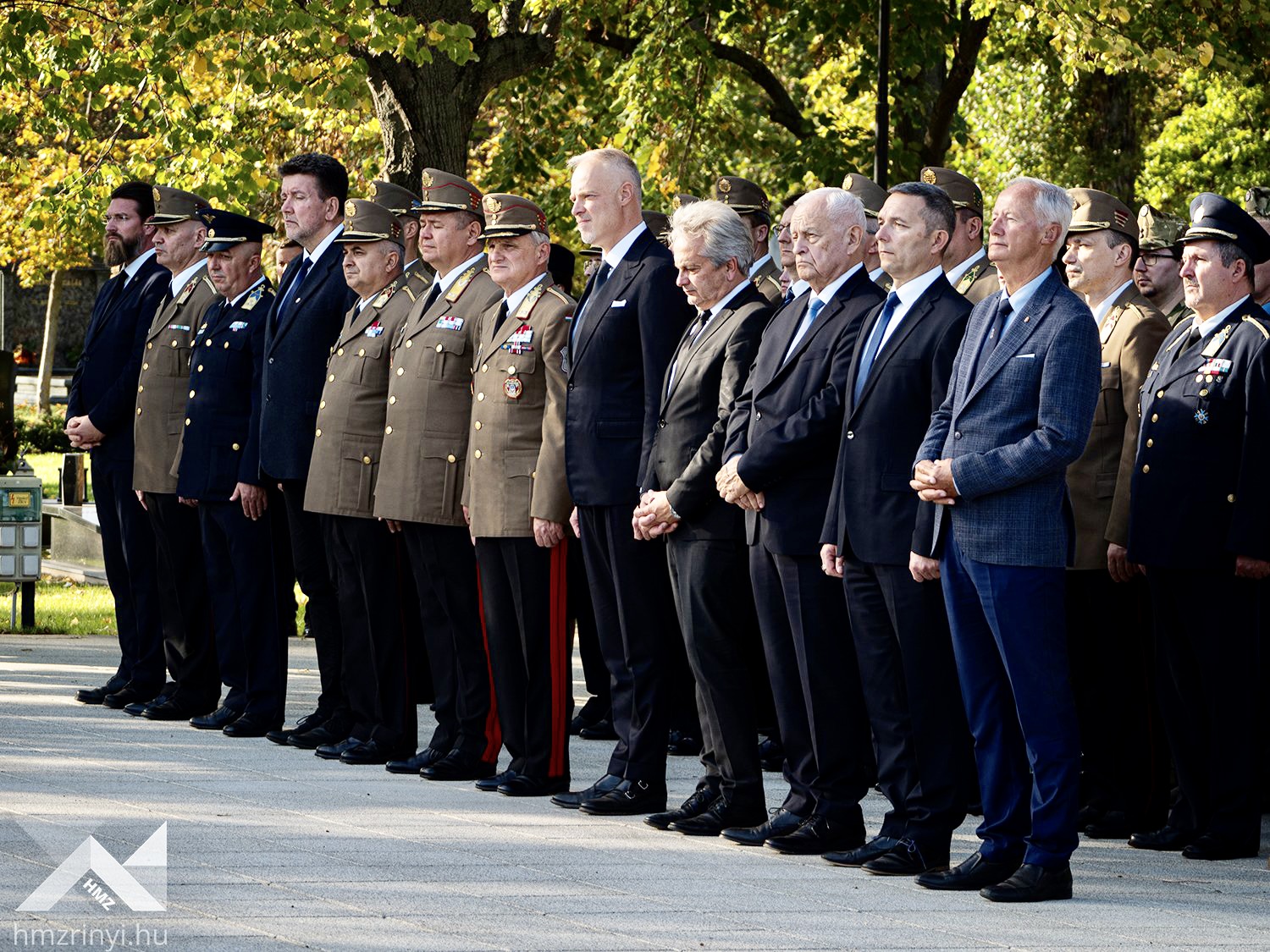
It was not even allowed to commemorate the heroic dead, their graves were unattended, and the veterans were often victims of unjust and humiliating discrimination. This is also grossly unbecoming because, contrary to popular belief, members of the Royal Hungarian Defence Forces fought well in the Second World War. Their performance was limited by their much inferior equipment compared to the other belligerents, but they were not lacking in courage, just like their predecessors. We now we bow our heads before the 102 Hungarian heroes exhumed from various battlefields and cemeteries in Hungary, paying our respects as we accompany them on their final journey to the Parcel of Heroes. The ashes of the heroes brought from the burial places of Környe, Akasztó, Magyaralmás, Besenyőtelek, Cinkota, Tiszaörs, Rétság, Budapest, Valkó will finally be laid to rest in a dignified place, and Hungary will express its gratitude and appreciation for their service.
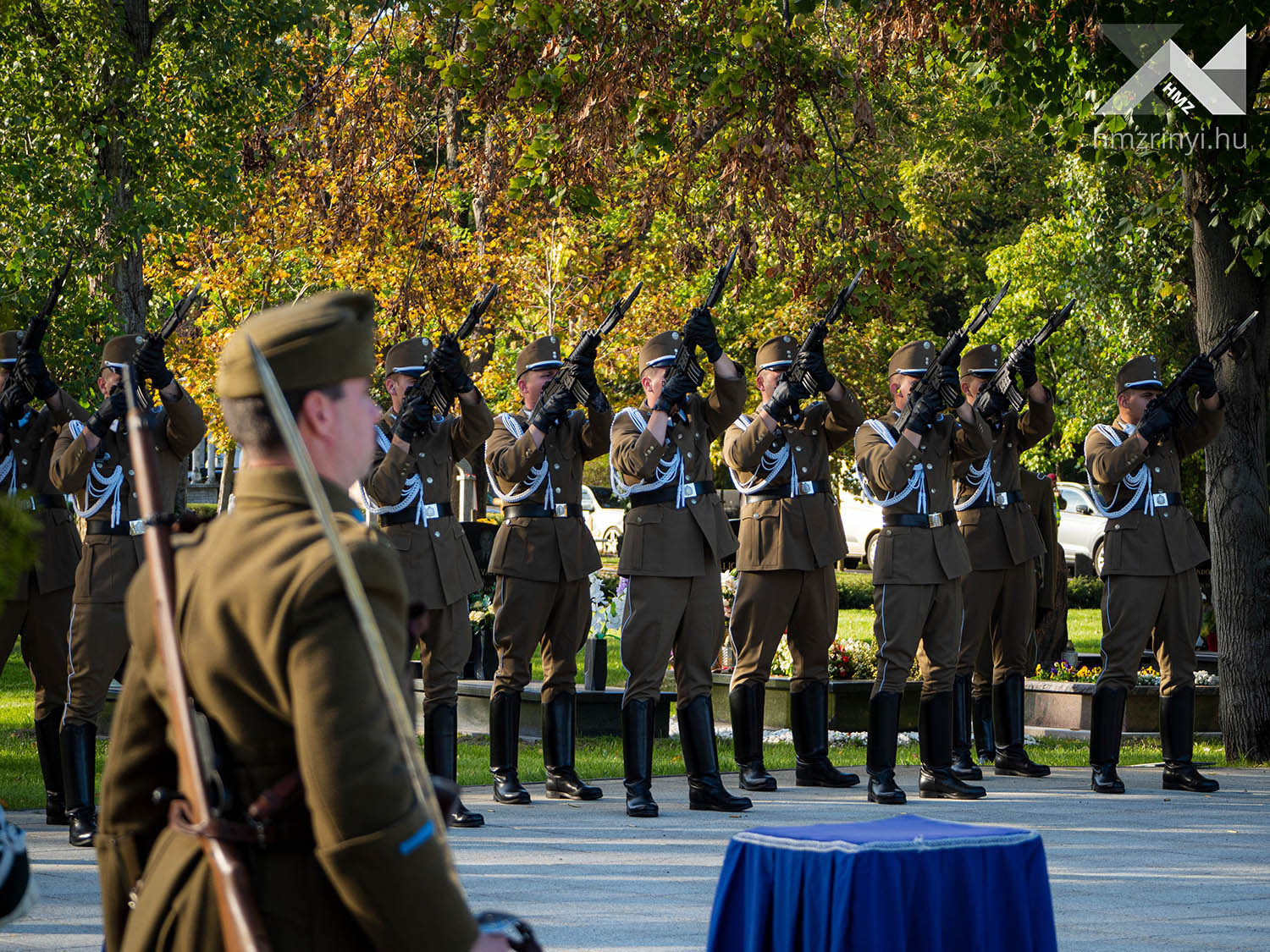
Before we say a final farewell to those who sacrificed their lives, let me tell you about an experience that has affected me personally and deeply. When I read the preliminary report of the military cemetery experts on the background of the current reburial, I was shocked to see the stark statistics: 39 exhumed soldiers from the former military plot in Környe, 36 of whom have been identified. Most of them fought in the 1st Hussar Division of the Royal Hungarian Army.
The Hungarian-German military cemetery in Környe, which was established hastily, received the dead of the operations in the Vértes Mountains to liberate Budapest from the Soviet troops, from the very end of 1944 until 18 March 1945. The 1st Hussar Division of the Royal Hungarian Army was also deployed here against units of the Soviet 3rd Ukrainian Front.
AT THE 15-KM-LONG DEFENSIVE LINE OF THE HUNGARIAN CAVALRY CORPS IN THE VÉRTES, A KIND OF STALEMATE HAD ALREADY DEVELOPED DURING FEBRUARY, DURING WHICH THE HUNGARIAN SOLDIERS FOUGHT DESPERATE, FIERCE AND COSTLY DEFENSIVE BATTLES WITH THE RED ARMY, WHICH WAS SEVERAL TIMES OUTNUMBERED IN PERSONNEL AND TECHNICAL TERMS.
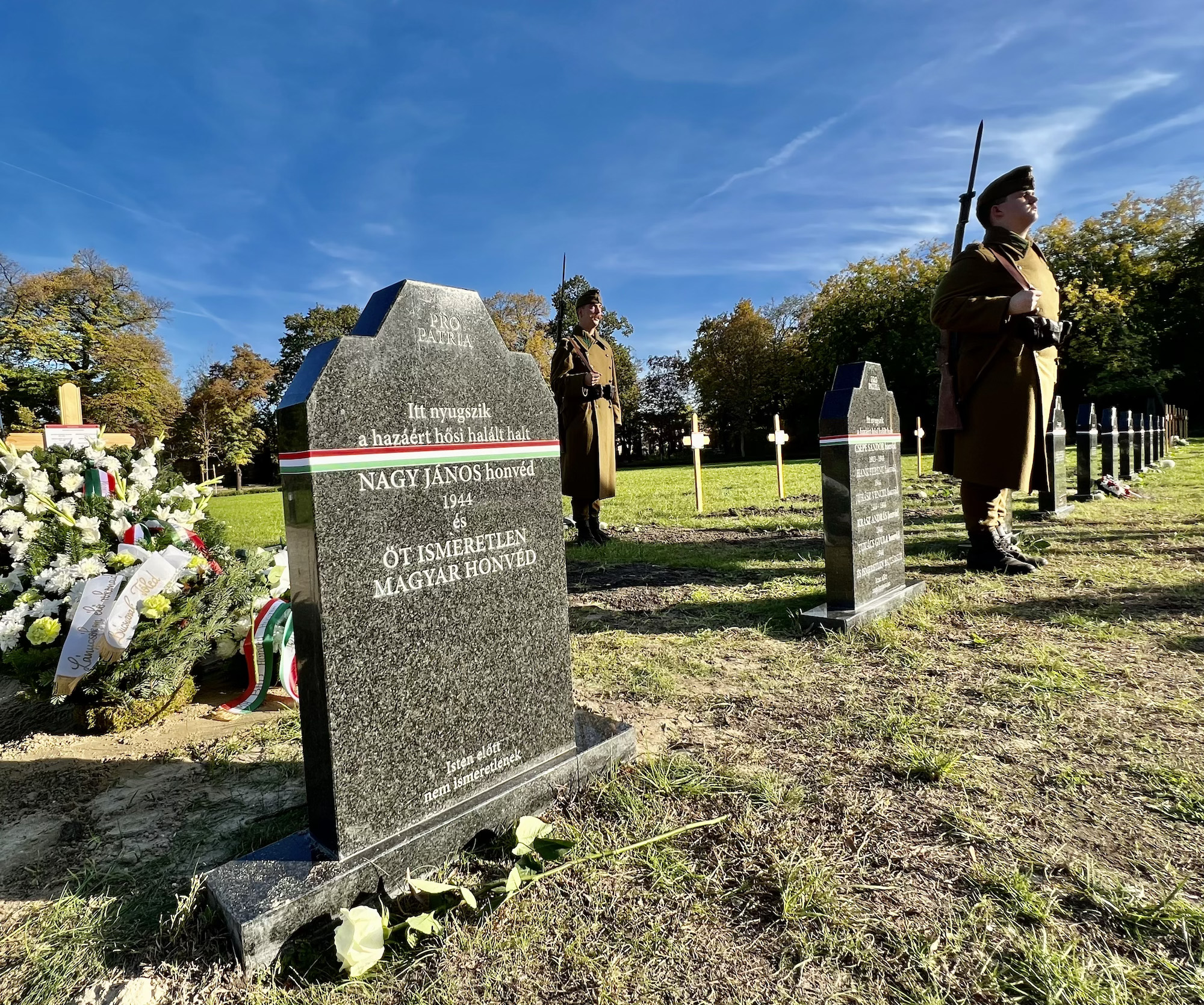
I stared blankly at the report, then at the heirloom on my desk, a silver cigarette case with a bullet hole in it. The case belonged to my grandfather, Hussar Captain Tamás Bobrovniczky, who served in the 3rd Royal Hungarian Nádasdy Ferenc Hussar Regiment. As the commander of the 6th Company, he was seriously wounded by a machine-gun fire at Felsőgalla on 17 March, not far east of Környe, in the close fighting in the Vértes, the traces of which are also visible on the cigarette case.
It was then that I realised that the soldiers who had been exhumed from the cemetery in Környe and taken to their final resting place were my grandfather's comrades. But not just the Hussars he commanded, like the Hussar platoon leader Imre Lépold, who is buried here. The soldiers buried in Környe, regardless of their regiment, were his comrades in the strictest sense of the word, members of a brotherhood united by the bond that can only be formed in a common struggle.
And then my childhood memories of stories told only within the family circle, of times gone by, of worlds and heroes that were forbidden to speak of at the time, came back.
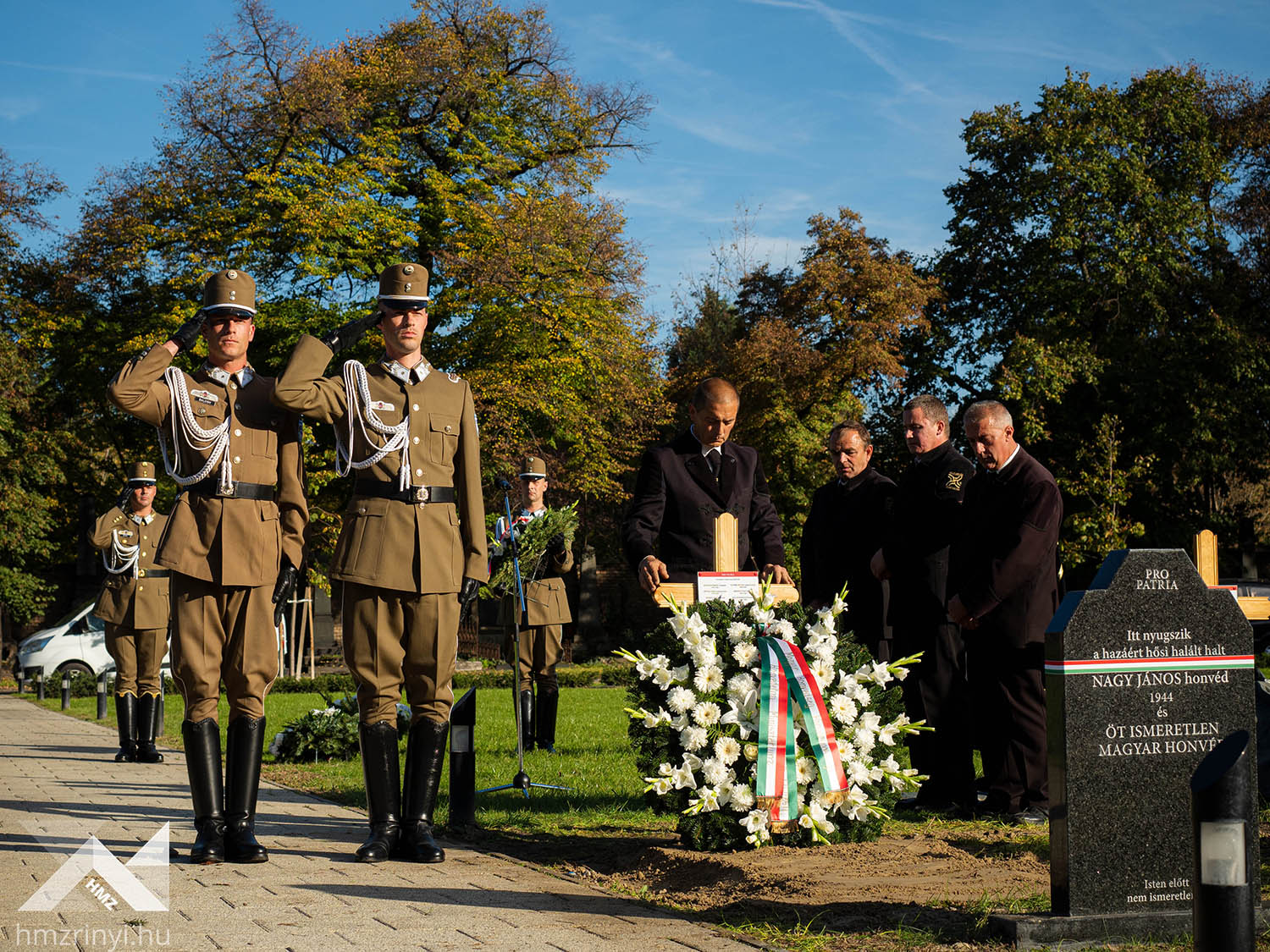
MY MEMORIES OF A FORMER HUSSARS OFFICER WHO, EVEN IN HIS OLD AGE, ENDURED ALL THE MISERIES OF HIS BULLET-RIDDLED LEGS WITH DIGNITY, OBLIVIOUS TO THE TROUBLES HIS MILITARY PAST BROUGHT HIM IN THE NEW REGIME.
My grandfather was still a proud Hussar, who preserved his honour, his family as his mission in life, his few surviving comrades as company. It is strange, elevating, and very honouring that I, his descendant, am the one who can pay the military tribute to his fallen comrades that would have been his duty, but the communist era did not give him the opportunity to do so. To deliver a speech at the graves of those who were doomed to oblivion, but yet the changes of history have brought them the chance to take their place in the pantheon of heroes in every respect.
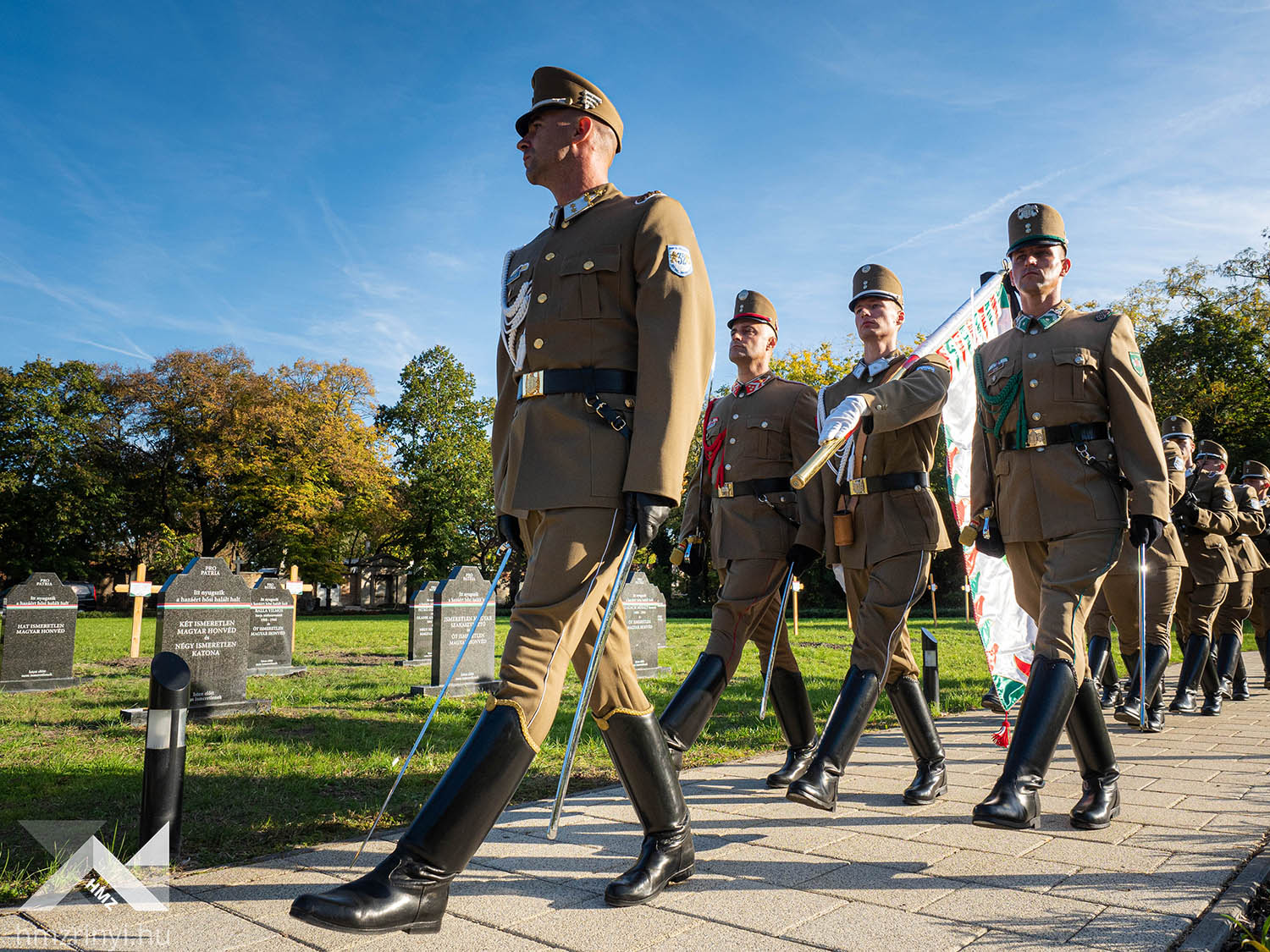
The Ministry of Defence, in obedience to the moral imperative of the care of the heroic dead, is making a constant and significant effort to locate the final resting places of our fallen soldiers, to identify those buried there and to care for their graves.
For this is our sacred duty, in the words of Count István Széchenyi:
" WITHOUT HONEST REMEMBRANCE, NO NATION CAN BE BUILT!"
I would like to take this opportunity to thank the people working in the War Graves and Military Heritage Directorate of the Military History Institute and Museum for their dedicated and painstaking work on behalf of our ancestors who died for our country. The result of their work is this solemn ceremony of mourning, during which 102 soldiers are now being returned to the nation, fulfilling one of the oldest commandments of the military ethos:
WE LEAVE NO ONE BEHIND.
Those who sacrificed their lives in combat must not only be remembered, but also commemorated because it is their courageous stand that should serve as an example and a guide in today's world without a solid set of values. The heroes of our wars demonstrated their courage and commitment to the nation and their comrades through their actions. The practice of the ideals they embodied - the acceptance of hierarchy, the order of command and obedience, heroism in battle, the virtues of honour and loyalty and self-sacrifice - are not only timeless values for the military, but also essential to the existence, unity and survival of the nation.
I bid farewell with the words of Gorch Fock, the German marine and poet who died in the Battle of Jutland:
"THE DEAD ARE NOT DEAD; THEY WALK WITH US. THEY ARE ONLY INVISIBLE, THEIR FOOTSTEPS INAUDIBLE."
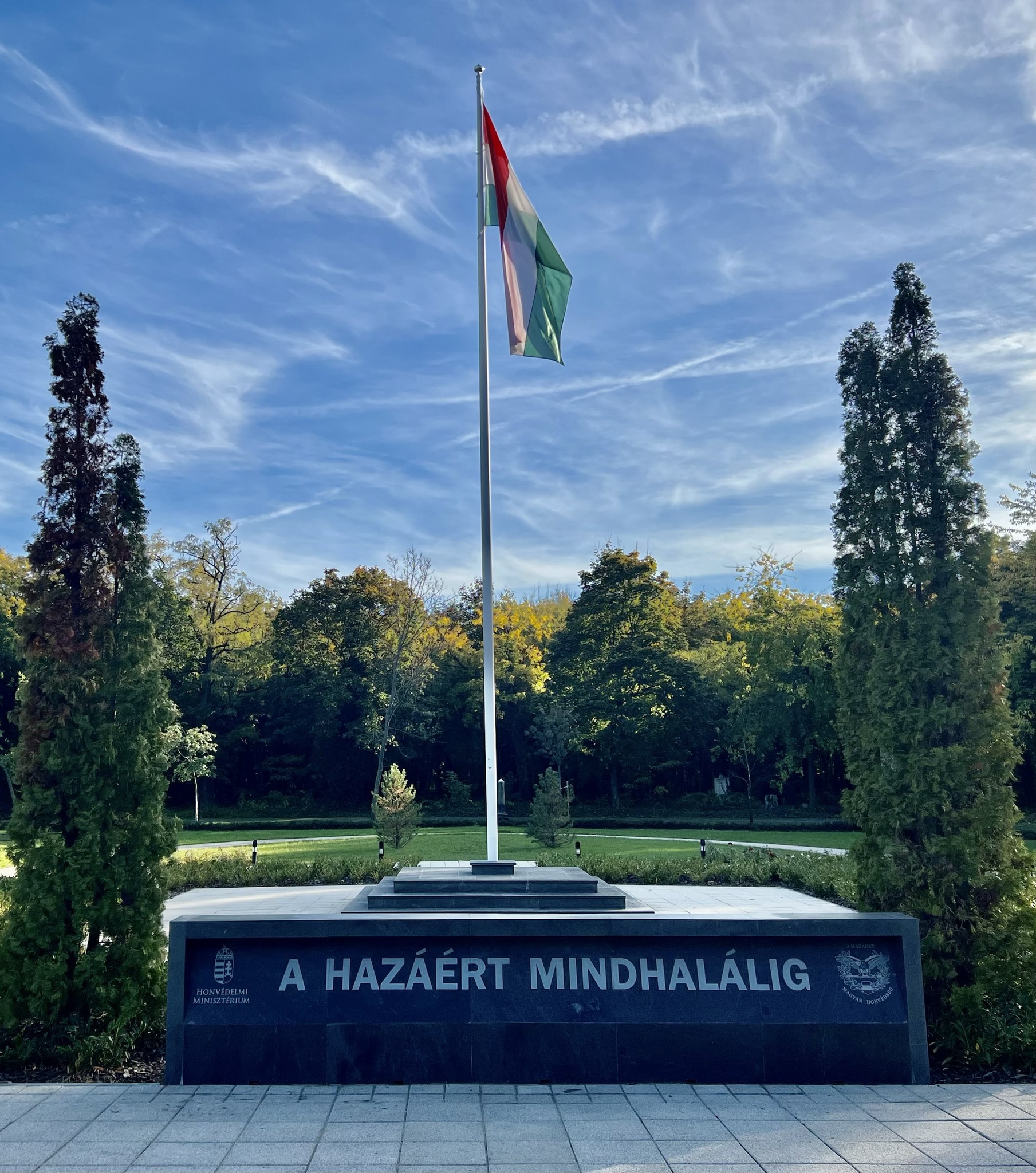
But in order for them to walk with us, their memory must be kept alive - so they also become our comrades. And so, they will also become part of eternity. Because where heroes are not forgotten, there will always be new ones.
Thank you for your kind attention."
The ceremonial reburial was attended by Tamás Vargha, Parliamentary State Secretary, Deputy Minister, Péter Harrach, President of the National Memorial and Commemoration Committee, Gyula Dallos, Ministerial Commissioner, Gábor Móczár, Director General of the National Heritage Institute.
Source of photos:honvedelem.hu